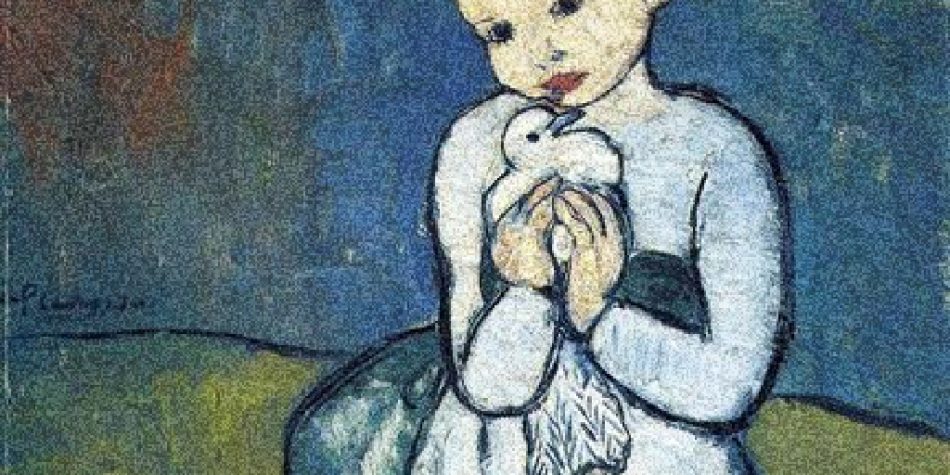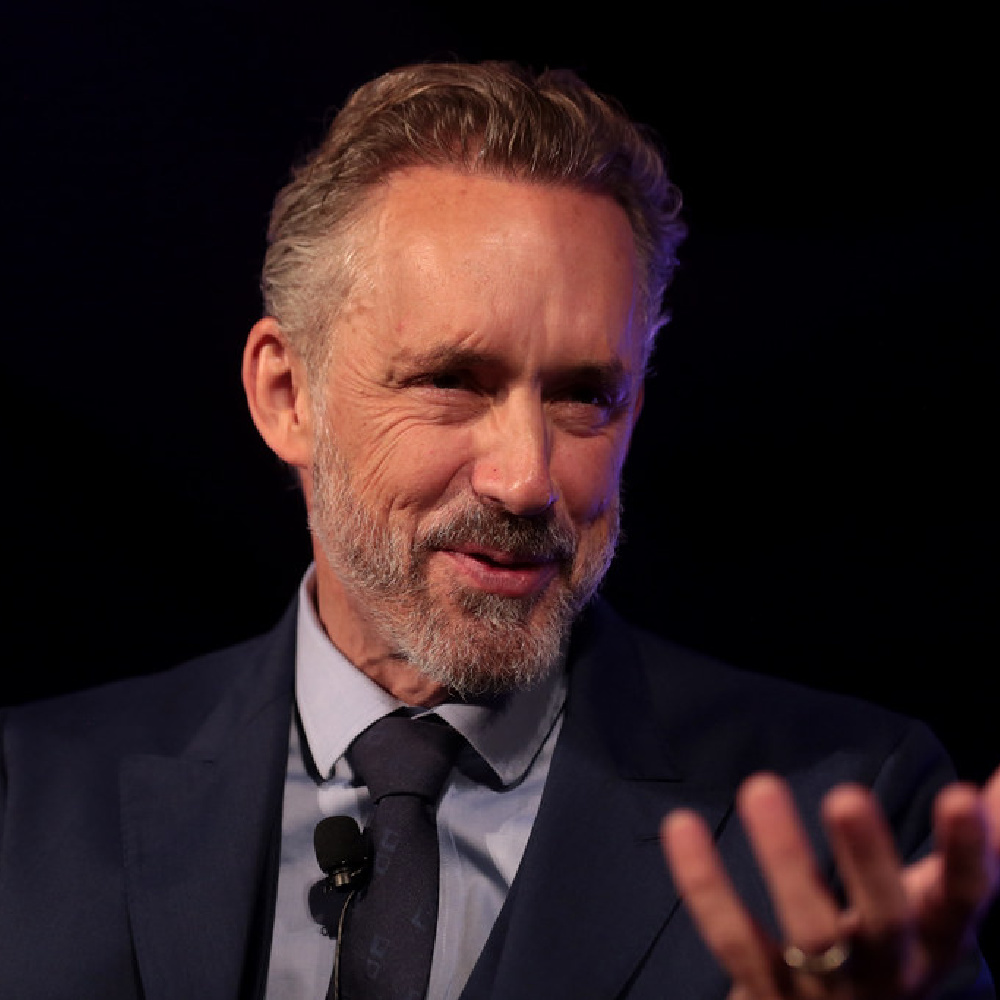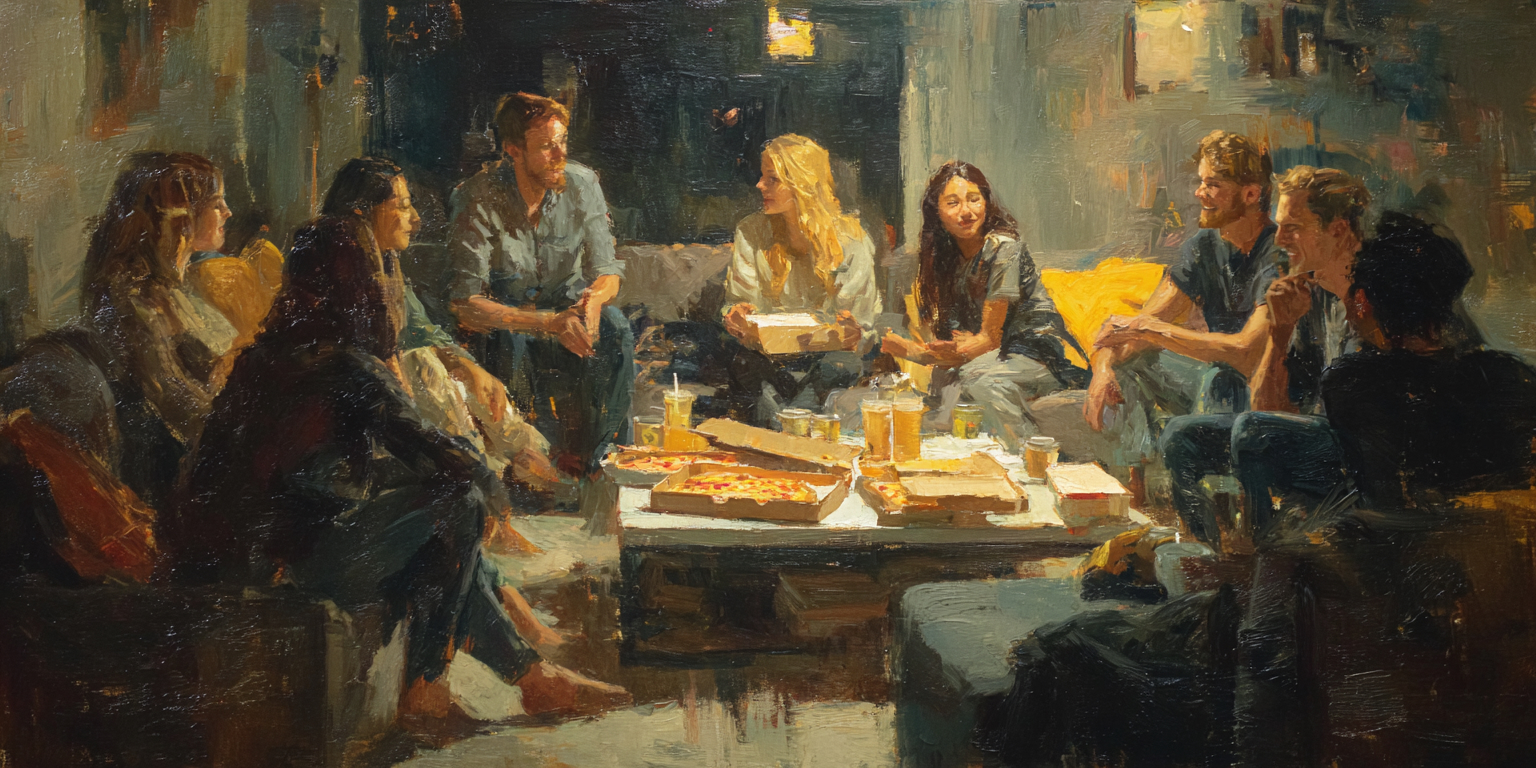American conflict resolution professionals have worked for decades to try and help encourage peace in other countries, from Nigeria to the Sudan. In the last few years, something unusual has happened—their attention has been drawn back home.
We recently spoke with Liz Hume, President of the Alliance for Peacebuilding, about exactly this. Here’s what she said about this American moment in an interview for the New York Times: “There are a lot of people who have been working internationally who are calling me up and saying, ‘Oh my gosh, what do we do? We have to do something,’ We are seeing some serious red flags. Things that make conflict experts like me really nervous.”
Liz is not alone. When Daniel Noah Moses, director of a nonprofit working for peace in the Middle East, moved back from Jerusalem to America, he commented on how strangely familiar it all was, “I’ve been surprised by how similar it all is—the gaps in understanding, the levels of emotion, the negation of ‘the other.’”
As Liz and Daniel both attest, this dismissive negation is not inevitable. There is another way – a far better way.
That’s no Pollyannish bluster. It’s the conclusion coming out of the combined deep experience of the dialogue and deliberation community here in the U.S., including seven inspiring organizations that have worked at the heart of the very red-blue conflict now exploding before our eyes.
Since our own editor-in-chief has been involved with each of these organizations in some capacity, Jacob takes a moment to summarize each of their unique contributions below, in what we hope will be a collective Shot in the Arm at a time—and on a day—when we could all surely use it.
After these introductions, we circle back to the big question facing us all today (yes, arguably even bigger than That Other Decision we’re making).
1. Miracles in Your Own Home—Living Room Conversations
After starting the progressive force Moveon.org years ago, Joan Blades came to realize that “adversarial problem solving” would not be enough to overcome the challenges our nation was facing. Over the last decade, Joan has rallied an army of what she calls “domestic peacemakers” through her work with Living Room Conversations. One by one, home by home, night by night, Joan has planted seeds of peaceful co-existence across the deepest of boundaries in America through a simple, scalable process that people can do without any formal facilitation. All you need to do is download a guide across many relevant topics, call up a friend willing to co-host, and get ready to have a powerful evening. If you can’t think of anyone, you can also participate in an online LRC with someone else across the country—including in their “Moving Forward Together” campaign of online conversations after the election.
I’ve seen the fruits of this beautiful practice over and over—including at the LGBT/religious conservative divide, as Tracy and I wrote about at the Huffington Post, Eating Hummus with the Enemy. (Take a peek at how this easy approach to hosting conversations works with the highlights of another evening here). The impact of even 2 hours together is magical—with people who were previously suspicious, leaving with hugs and an exchange of phone numbers.
On the eve of a troubling election, Joan told me in a recent interview: “there is definitely a portion of our national discourse that is deeply broken.” Rather than something people are conscious about, however, Joan cited the recent documentary about social media to highlight how external forces are acting upon people unawares and thereby “exacerbating our polarization.” At the same time, she emphasized that “many of us don’t have the tools it takes to disengage from the partisan narrative and make real connections across differences.” She then summarized what she saw as the central key:
We don’t trust our voting systems, we don’t trust our leaders and we don’t trust each other. It is time to restore our trust in each other and our systems. We need to be in right relationship to address the big challenges we face. We will only succeed if we do this together.
Oh, one more thing: It was also thanks to Living Room Conversations and their close partner All Sides, that we were able to create and launch the Red-Blue Dictionary several years ago—an innovative text that helps “map out” various meanings for terms in a way that helps folks on the left and right “translate” the different senses of a word like “social justice” or “biblical” (which clearly don’t mean the same thing to Americans anymore).
2. Civility That Doesn’t Taste Like Broccoli—The Village Square
The idea of “civility” can feel stuffy, and boring…like being dragged into a high school civics class all over again. But it doesn’t have to be!
Over the same decade that Joan was convincing individuals their own homes could become havens for social and political healing, Liz Joyner was innovating the foundations for a public square to meet the challenges of the 21st century. Billing themselves as “a nervy bunch of liberals and conservatives who believe that disagreement and dialogue make for a good conversation, a good country, and a good time” Liz helped launch The Village Square in Tallahassee as a revolution in how we approach civic spaces—outlining how to convene diverse citizens for conversation over good food, and lots of belly laughs. One key is to tell the American story in a way that people across the political spectrum can find inspiration in it (rather than writing it off completely). Needless to say, Liz is a big Hamilton fan!
Which kind of liberals and which kind of conservatives are we—and do we want to be?
As Liz told me in a recent interview, “If you were to boil down the essence about what is unique about democracy – it’s not that we agree with each other. It’s that our way of seeking truth involves disagreeing with each other.” She continued:
We maintain our freedom by disagreeing…those are constant companions in the yin and yang – finding truth and exercising freedom. That’s how a diverse people self-govern. Without that yin-and-yang, it doesn’t work. You run up against human nature – with like-minded groups becoming even more blind than individual humans are.
Liz added, “What’s attacking us is the ugly side of human nature. Call it evil, or the devil – or whatever frame you want to put on it. That’s really what I think we’re fighting here.”
Over recent years, I worked with Liz Joyner and the Village Square, to help create the Respect and Rebellion initiative—collecting examples of Red-Blue friendships throughout history, up to this very moment (seriously, if you need a boost, just read some of these stories!). In fact, many of these “unorthodox” or “treasonous friends” have made themselves available to speak on college campuses and in communities—with pre-post tests confirming substantially positive shifts. For instance, compared to before the event, 85% of participants report “feeling more comfortable sharing my political views honestly” and 78% report feeling “like it is more possible that I could learn something from people on the other side of the aisle.”
Those shifts come from just one evening of witnessing an unorthodox friendship sharing their story. It doesn’t have to take a miracle!
3. The Answer for the Academy’s Woes – Heterodox Academy
While we’re talking about college, you’ve probably heard by now how partisan an environment universities have become. (It’s true.) But it’s not true that we should give up on the beautiful potential of the academy – which I personally experienced during an incredible graduate school experience. Heterodox Academy exists as a reminder to faculty, administrators, students, and the public at large about the precious need for ideological diversity on American campuses— along with other kinds of valued diversity.
Having attended the last two national conferences Heterodox hosted in New York City, I can tell you the spirit is powerful and electric. (Listen to this remarkable panel discussion from the last conference to see what I mean). If you work at a university in any capacity—or attend college—you’re going to love what this group is doing.
If you are a college student—anywhere—I’d also encourage you to reach out to Bridge USA, an organization geared even more directly to students, and with an allied mission. The inspired young leaders of the effort, Manu Meel & Ross Irwin, are men I know personally and well; they are remarkable and good-hearted. If you’re a student right now, reach out to them—and register for their “Post-Election Student Forum.”
4. The National Leader in Red Blue Reconciliation—Braver Angels
When I showed up at the (then) “Better Angels” National Convention last year in St. Louis, I wasn’t expecting to be surprised. Having worked in Red-Blue dialogue in some capacity for a decade, I didn’t imagine there was a whole lot more to see. I was wrong. My time immersed among the ethos and people drawn to (now) Braver Angels was unlike anything I had experienced before. What I noticed first was how much these people (who were exactly, by the way, evenly divided – 50/50 – between right and left), were laughing….and not the merely polite kind. There were deep belly laughs on every side! The more I observed—their debate format, the social gatherings, the workshops, the speeches, I started to realize the Tour de Force this organization was becoming (and with a minuscule staff and an inadequate budget).
Most recently, they invited people to sign a letter committing to a peaceful transition of power and outlining citizen commitments to “What We Will Do to Hold America Together.”
If you haven’t spent some time with them, you really need to…maybe, starting with their “Day After the Election” Gathering to process whatever happens tonight and to hear personal reactions from the seasoned Braver Angels leadership. Writing about the post-election environment, their founder David Blankenhorn recently said:
The great task before us is to rebuild what Lincoln called our “bonds of affection” after this election. The great need is to come together as one country, knowing that neither side, whether in or out of power, will get the country it wants by despising the other side. This is the work of patriotic citizenship after this election. It’s up to us—the politicians won’t fix this, only we the American people can fix it.
If you need a shot-in-the-arm of new hope, join Braver Angels as a member today—and plug into debates, workshops, calls, and anything else they cook up. You won’t regret it.
5. The Gold Standard for Difficult American Conversations—Essential Partners
The very first time I attended the National Coalition of Dialogue & Deliberation conference, it was (then) Public Conversations Project who met me—and assured—me a conservative kid from Utah was welcome. This organization became famous in the 1990’s for facilitating successful dialogue between pro-life and pro-choice leaders in Boston after an abortion doctor was murdered. They also pioneered one of the earliest Guides to Conversations across the Red Blue Divide.
(Now) Essential Partners leads what I consider the most highly refined and sophisticated training of the art of dialogue anywhere—with workshops delivered all around the world, including in Nigeria. Over two years, we had the joy of bringing Dave Joseph and Meg Griffiths to Utah to conduct two different training workshops to prepare more dialogue facilitators in our region, and ultimately help us create a strong “community of practice” in our state. As the organization is led by two of the most effective spokespersons for dialogue in America today, John Sarrouf & Katie Hyten, Essential Partners workshops are like manna to a nation that is forgetting how to do this.
If you’re looking or more post-election support, Essential Partners just announced a four-part series, starting next week, which will empower you to repair the fabric of your community, piece by piece.
6. The Missing Piece in the Red-Blue Tapestry—Weave, The Social Fabric Project
No single individual has done more to advance deeper understanding across the political divide, I believe, than David Brooks. It’s just the truth. With his enormous reach, David has advocated for not only conservative principles, but for the critical respect for institutions, faith and community on which America’s health depends.
I was honored to be invited to attend his Weave conference launching an effort to help re-weave the social fabric last year. Liz Joyner and I profiled highlights of the conference here (you can watch the introduction of the conference here). Among the many efforts, they have launched a beautiful online forum to help connect people doing good things in communities. The careful attention to the fragile beauty of our social fabric is a crucial part of the conversation Americans need to keep expanding in future years. Their invitation to the country is summarized below:
Our experiences of this outbreak and unrest are all different, but one thing is clear: in this time of struggle, we have a choice.
We can give in to fear and put up our defenses. Or we can open up. We can find meaning in relationships. We can solve challenges together.
Because it’s in small acts of bravery, caring and connection that we can heal this pain and weave the future we want.
Let’s Go There
7. Synergizing Coalitions and Alliances—NCDD, Bridge Alliance, and Listen First Project
It was thanks to the National Coalition of Dialogue and Deliberation that I came to learn and know anything about these remarkable organizations—and to meet the many friends and conversation partners who have changed my own life. For instance, at my first NCDD conference, I met Phil, an atheist Marxist professor with whom I wrote, “You’re not as crazy as I thought (but you’re still wrong).” It’s at this same conference a few years later where our “Sextet” dialogue group came into being that taught me so much about LGBT/religious conservative dialogue. In addition to gathering the largest online resource center of dialogue and deliberation resources anywhere, NCDD has convened hundreds of dialogue organizations and practitioners for many years—and given all these understaffed, unheralded groups regular encouragement to keep going.
With a similar vision of the power of collaboration, Debilyn Molineaux and David Nevins—formerly with Living Room Conversations and No Labels—helped launch an inspired effort to bring together organizations working for healthy democracy and civic society called the Bridge Alliance—which most recently gathered a “Crisis Recovery Guide” to help communities navigate election-related turbulence. And Pearce Godwin’s Listen First Project similarly has brought together organizations for innovative, creative programming to reach even more Americans with this message. His vision of “transform[ing] the tide of rising rancor, deepening division and increasing isolation into a wave of respect, connection and belonging” was featured in USA Today this summer.
Our Precious Civic Ecosystem
Each of these organizations has played a crucial role in bringing together disparate dialogue, deliberation and bridge-building efforts for more synergy over the last decade. In total, all these efforts represent a kind of crucial “civic ecosystem” for America—especially as they work in partnership with civic organizations, faith communities, and millions of individual families. As detailed in “Preserving and Protecting Our Precious Civic Ecosystem” compared to the remarkable efforts going into preserving our natural habitat under threat, relatively little attention (and investment) goes into the similarly fragile civic ecosystem.
Which brings us to the giant choice still facing us—regardless of who wins the election this week.
To put it starkly, are we going to work to preserve this precious civic ecosystem, or are we going to allow others to keep lighting it on fire? Which effort will we be a part of—those reweaving the civic fabric, drawing hearts together, and deepening understanding?
OR the many opportunities to join with that other corrosive, cynical effort all around us (and on both sides of the political divide)?
That’s a choice we all get to make.
Leaders around us are making both of these choices. And so are citizens.
This isn’t just a “conservative” or “liberal” question, because it divides people on every policy question (while uniting them across various political divides). As confirmed by recent surveys, there are very different kinds of conservatives and liberals out there. There are liberal and conservative Americans who care little about preserving a civic space of open conversation—and there are Americans across the political spectrum that care enormously about exactly that.
So, what kind of liberals and which kind of conservatives are we—and what do we want to be?
In cynical times like these, someone has to serve as the guardian of lost causes.
One thing seems increasingly sure: the ugly elements on the left and right will keep duking this out—perhaps even in more aggressive ways in the future. That leaves those of us who want something better to find each other—and hold on to each other, as we preserve a better way of moving forward.
We need to do that regardless of what the aggressive elements on each side end up choosing to do. Independent of that, we can do the work in our own sphere and networks to cultivate conditions for the world we do want to live in.
One day.
Deep Breaths and Big Dreams
Recent years have been difficult for the many players in the bridge-building community we’ve surveyed above. All the hard work they’ve done on campus, in communities, and in homes, seems at times to be unraveling.
In fairness, it’s not an easy time for anyone working towards a better society, in all the many dimensions of what that includes. But the conviction and passion of this movement (and others) won’t die, even if they have to be “seed-savers” for a future day when more Americans re-embrace these principles. As McKay Coppins wrote in a piece last year about Romney’s isolation from other Republicans, “In cynical times like these, someone has to serve as the guardian of lost causes.”
It’s not too light to fight for all these causes, and draw more people to them—even if the larger landscape looks ever more gloomy. That’s not just subjective hand-wringing—and is, indeed, reflected in widely-respected, objective measures of civic destabilization. For instance, in 2017, the United States fell 11 points and ranked 114 out of 163 countries on the Global Peace Index, placing it between Rwanda and El Salvador. The U.S. also fell in the Fragile States Index and was downgraded—with 29 other countries more stable than the United States in terms of security forces, human rights, government stability, societal grievances, and other measures.
That’s why Liz Hume cited earlier joined other conflict resolution experts in a June 2020 letter titled, “Conflict Experts Call for Immediate Action to Address Conflict Dynamics in the United States.”
The dangers of this moment are real. However, no matter what difficulty we have to face ahead, we also see good things on the horizon. That includes a “gathering of all goodness”—with the decent, good-hearted people in all communities increasingly being compelled to find each other and come together in new, promising ways.
And that’s something to be excited about! In the meantime, check out these encouraging efforts above to get an extra dose of optimism regarding all the beautiful things still possible.

















